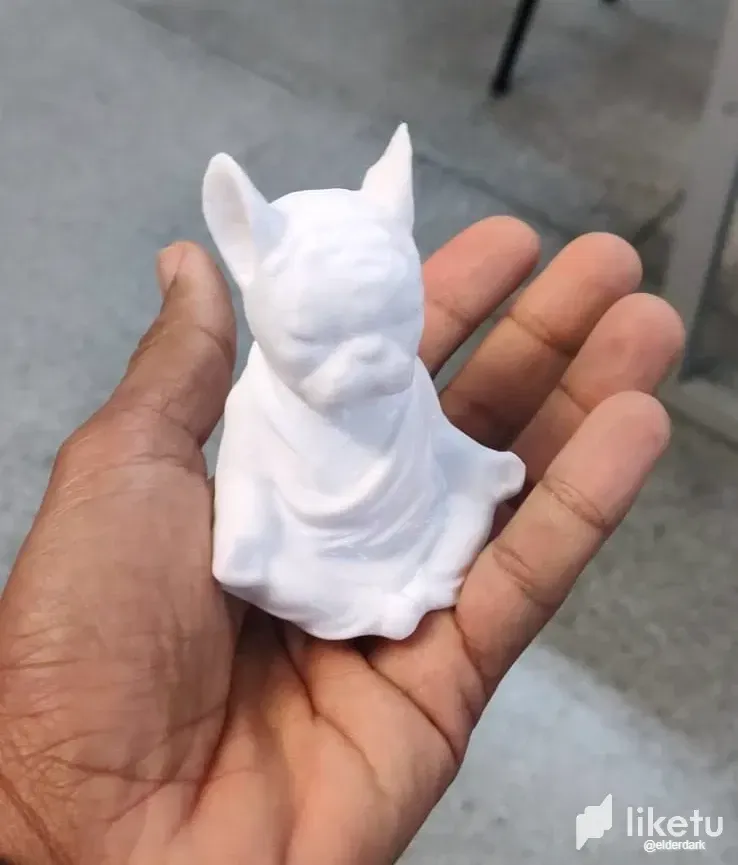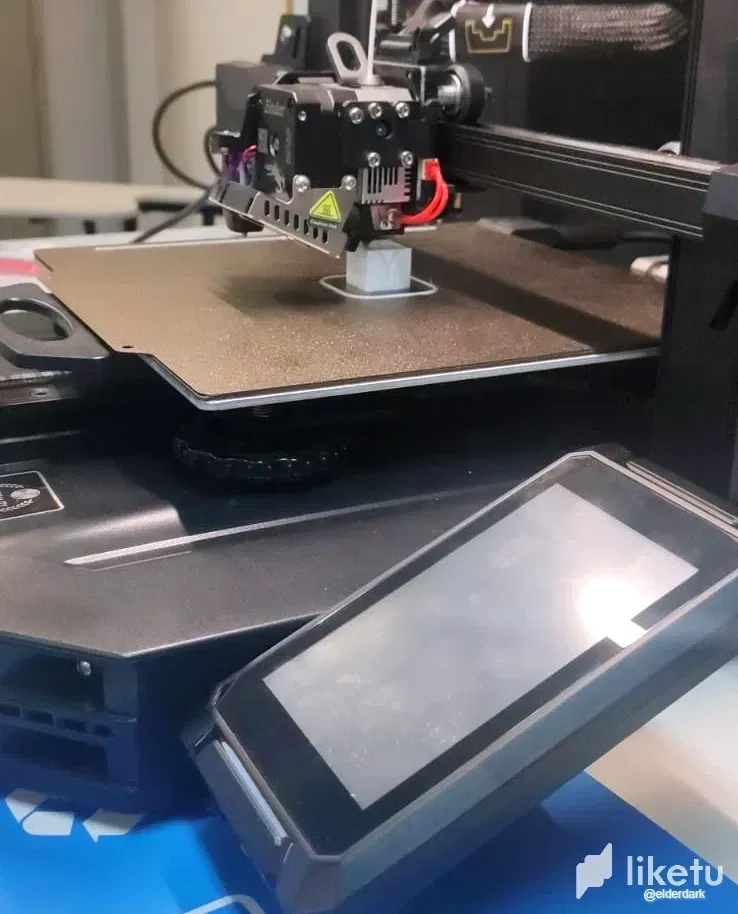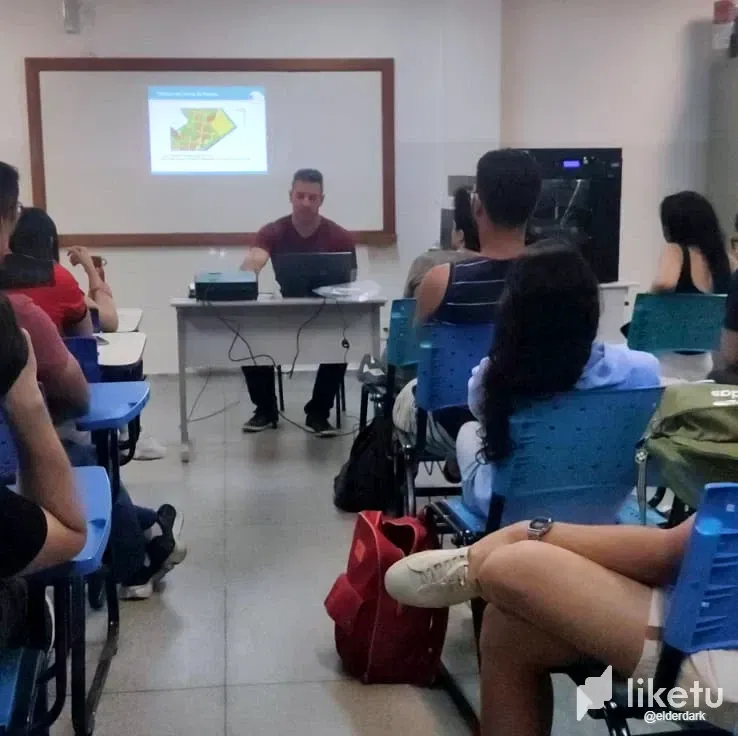[EN/PT] Diving into 3D printing



[EN]
This past week, I took a short introductory course in filament 3D printing (FDM). I've always found 3D printing interesting, but I didn't realize how much work it would be. On the course, there were two printers: one already set up for printing and another where we needed to make adjustments to the mechanical part, as some parts needed to be replaced, such as the printer nozzle (which was almost clogged). In addition, a coupling on the Z axis was damaged.
The course was very interesting, as the teacher not only showed us each part of the printer, but also replaced these parts during the lessons, as well as making small adjustments for printing. We learned about the types of filament, such as ABS (acrylonitrile butadiene styrene) and PLA (biodegradable thermoplastic polymer), which are the most widely used in Brazil. Each type of filament has its own printing characteristics, such as the temperature of the table and the extruder. ABS, for example, needs to be printed on closed printers and is a toxic material. PLA, on the other hand, is made from biodegradable materials such as corn and can be printed on open printers, which are cheaper.
As well as learning about the main types of filament and the parts of the printers in a practical and tangible way, we also had contact with software for making 3D parts, such as Tinkercad and Fusion 360. We also learned about slicing software, since although the printer is 3D, it prints in layers. In reality, it does 2.5D printing, hehe.
The course lasted all day, with an introductory approach, but we learned a lot. 3D printing is a vast universe, and for those who work with project development, as in my case, electronic projects, we often feel the need to design parts to help with the structural or even mechanical part. Therefore, this course will serve as a basis for me to delve deeper into this area, since I have easy access to a 3D printer.
**If you've made it this far, thank you for your time and, if this content was interesting in any way, please leave an upvote and reblog it!
[PT]
Essa semana que passou, fiz um pequeno curso introdutório de impressão 3D em filamento (FDM). Sempre achei interessante fazer impressões 3D, mas não imaginava que desse tanto trabalho. No curso, havia duas impressoras: uma já ajustada para impressão e outra em que precisávamos fazer ajustes na parte mecânica, pois algumas peças precisavam ser trocadas, como o bico da impressora (que estava quase entupido). Além disso, um acoplamento do eixo Z estava danificado.
O curso foi bem interessante, pois o professor, além de mostrar cada parte da impressora, fez a substituição dessas peças durante as aulas, além de realizar pequenos ajustes para a impressão. Aprendemos sobre os tipos de filamento, como ABS (acrilonitrila butadieno estireno) e PLA (polímero termoplástico biodegradável), que são os mais utilizados no Brasil. Cada tipo de filamento tem suas características de impressão, como temperatura da mesa e da extrusora. O ABS, por exemplo, precisa ser impresso em impressoras fechadas e é um material tóxico. Já o PLA, feito a partir de materiais biodegradáveis, como o milho, pode ser impresso em impressoras abertas, que são mais baratas.
Além de conhecer os principais tipos de filamento e as partes das impressoras de forma prática e palpável, também tivemos contato com softwares para confecção de peças 3D, como o Tinkercad e o Fusion 360. Também aprendemos sobre softwares de fatiamento, já que, embora a impressora seja 3D, ela imprime por camadas. Na realidade, ela faz impressão em 2.5D, hehe.
O curso durou o dia todo, com uma abordagem introdutória, mas aprendemos bastante. Impressão 3D é um universo vasto, e para quem trabalha com o desenvolvimento de projetos, como no meu caso, projetos eletrônicos, muitas vezes sentimos a necessidade de projetar peças para auxiliar na parte estrutural ou até mesmo mecânica. Portanto, esse curso servirá como base para que eu possa me aprofundar nessa área, já que tenho fácil acesso a uma impressora 3D.
Se você chegou até aqui, agradeço pelo seu tempo e, se de alguma forma este conteúdo foi interessante, deixe seu "upvote" e reblogue!
For the best experience view this post on Liketu

!LOLZ
!ALIVE
!PIZZA
Obrigado por promover a comunidade Hive-BR em suas postagens.
Vamos seguir fortalecendo a Hive
Bzzzrrr, que curso mais interessante! Elderdark, você me fez querer aprender mais sobre impressão 3D. Obrigada pelo relato! #hivebr
Your post was manually curated by @crazyphantombr.
Delegate your HP to the hive-br.voter account and earn Hive daily!
🔹 Follow our Curation Trail and don't miss voting! 🔹
Congratulations @elderdark! You have completed the following achievement on the Hive blockchain And have been rewarded with New badge(s)
Your next target is to reach 600 posts.
You can view your badges on your board and compare yourself to others in the Ranking
If you no longer want to receive notifications, reply to this comment with the word
STOPHo Ho Ho! @elderdark, one of your Hive friends wishes you a Merry Christmas and asked us to give you a new badge!
The HiveBuzz team wish you a Merry Christmas!
May you have good health, abundance and everlasting joy in your life.
To find out who wanted you to receive this special gift, click here!
You can view your badges on your board and compare yourself to others in the Ranking
Check out our last posts: